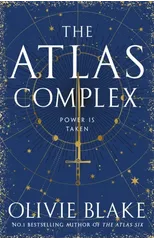Part of Alma Classics Evergreens series, this new edition of Frankenstein contains pictures and an extensive section on Shelley's life and works. Since it was first published in 1818, Mary Shelley's seminal novel has generated countless print, stage and screen adaptations, but none has ever matched the power and philosophical resonance of the original. Composed as part of a challenge with Byron and Shelley to conjure up the most terrifying ghost story, Frankenstein narrates the chilling tale of a being created by a bright young scientist and the catastrophic consequences that ensue. Considered by many to be the first science-fiction novel, the tragic tale of Victor Frankenstein and the tortured creation he rejects is a classic fable about the pursuit of knowledge, the nature of beauty and the monstrosity inherent to man. If you enjoyed Frankenstein, you might like reading Transformation, a chilling gothic tale available in Alma Classics 101 Pages series. ABOUT THE SERIES: Alma Evergreens is a series of popular classics. All the titles in the series are provided with an extensive critical apparatus, extra reading material including a section of photographs and notes. The texts are based on the most authoritative edition (or collated from the most authoritative editions or manuscripts) and edited using a fresh, intelligent editorial approach. With an emphasis on the production, editorial and typographical values of a book, Alma Classics aspires to revitalize the whole experience of reading the classics.
Mary Shelley
Mary Shelley was an English novelist, best known for her Gothic novel "Frankenstein; or, The Modern Prometheus," published in 1818. She was born in 1797 and was the daughter of political philosopher William Godwin and feminist Mary Wollstonecraft. Shelley's literary style is characterized by its exploration of existential themes, the consequences of scientific experimentation, and the complexities of human nature. "Frankenstein" is considered a seminal work of science fiction and has had a lasting impact on the genre, inspiring countless adaptations and interpretations. Shelley's other notable works include "The Last Man" and "Mathilda." Her contributions to literature have solidified her as one of the most important figures in the Gothic literary tradition.












